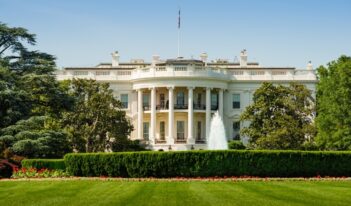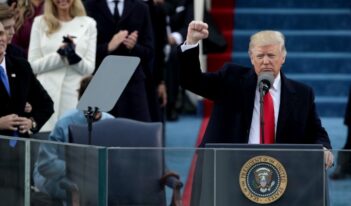
As drug prices spike, the presidential candidates endorse proposals for getting costs down.
Amid public anger over soaring prices of life-saving drugs like EpiPens, opposing presidential candidates Hillary Clinton and Donald Trump tout plans with several similar cost-cutting strategies, even as experts point to challenges in reform.
Both candidates back a strategy that would allow the government to negotiate prices of drugs covered by the federal health insurance program Medicare. Currently, federal law prevents the Centers for Medicare and Medicaid Services (CMS) from negotiating with pharmaceutical companies or fixing drug prices for Medicare. Instead, private plans that administer Medicare’s prescription drug benefit individually negotiate with drug companies for lower prices.
At a campaign event, Trump reportedly told attendees that if he were elected President, the government would aggressively negotiate for lower drug costs. “When it comes time to negotiate the cost of drugs, we are going to negotiate like crazy,” Trump allegedly vowed.
In her proposal, Clinton points to Medicare’s greater bargaining power compared with individual plans, stating that she “has long believed that Medicare should use its leverage with more than 40 million enrollees to negotiate and drive down drug…prices for seniors and others in the program.”
Since private insurers typically base their prices for health services on prices that CMS pays, researchers predict that drops in Medicare’s drug prices would also lower costs for private insurers.
However, opponents assert that if the government could negotiate for lower prices, then drug companies would have less financial incentive to produce drugs, which can cost billions of dollars to develop.
Opponents also claim that to lower prices, the government must be able to threaten companies with not covering a drug or limiting prescriptions, which could result in reduced access to medications among Medicare enrollees.
Congressional support for government negotiation is another concern for proponents. When in office, either Trump or Clinton would need to pass legislation granting government agencies the statutory authority to negotiate. Within the last several years, Congress considered various bills that would have let the federal government negotiate drug prices for Medicare, but Congress did not pass them.
Additionally, Trump and Clinton both support letting Americans access imported drugs as a way to lower drug costs in the United States. Noting that patients in European countries frequently spend half of what Americans spend on the same medication, Clinton’s proposal states that she “would allow Americans to safely and securely import drugs for personal use from foreign nations whose safety standards are as strong as those in the United States.” Similarly, Trump also reportedly endorsed giving “consumers access to imported, safe and dependable drugs from overseas.”
However, imported drugs may raise health and safety concerns. Officials from the U.S. Food and Drug Administration (FDA) have testified that foreign unapproved drugs could be expired, contaminated, or counterfeit. Still, proponents maintain that many foreign and unapproved drugs are just as safe and effective as drugs that are sold in the United States—and are also cheaper.
But given the insulation from competition that both the FDA approval process and patents provide, imported drugs may not fully address the lack of competition in the U.S. drug market—which experts say is a significant cost-driver.
When a new drug earns FDA approval, it also gains “exclusivity”—which means cheaper generic versions cannot enter the market for a certain period of time. The length of this exclusivity period generally ranges from five to 12 years depending on the drug type, with more complicated specialty drugs called biologics gaining 12 years of exclusivity.
Additionally, patents give companies exclusive rights to sell a new drug, which precludes generic competition. Since companies can get patent extensions and more exclusivity time by testing their drugs among children, the median exclusivity period following FDA approval is now almost 13 years for common drugs.
Experts point out that patents and other forms of exclusivity enable companies to undergo the financial risk associated with developing a new drug. “Companies spend billions of dollars researching drugs and ushering them through FDA approval,” Jacob Sherkow, professor at New York Law School, reportedly said. “They wouldn’t do that unless they could charge supercompetitive prices to make up for those investments.”
However, according to a recent study in the Journal of the American Medical Association, market exclusivity for new drugs also translates into higher costs, since generic competition considerably reduces drug prices. The study authors note that prices of drugs significantly decrease—in some cases dropping to a little over half of their original price—when generic competitors enter the market. The U.S. Government Accountability Office (GAO) has indicated that during an 11-year period, generic drugs saved the U.S. health care system over one trillion dollars.
Due to the buildup of generic drug applications, generic manufacturers face delays of three to four years before attaining approval to make a drug. As a way to spur generic competition, Clinton vows to “clear out the FDA generic backlog” by fully funding FDA’s Office of Generic Drugs.
Clinton also supports reducing the FDA exclusivity period for biologics from 12 to seven years, and she promises to bar “pay for delay” arrangements, which is when owners of patents will extend their market exclusivity by paying generic competitors to delay selling their product. In the case of extreme price increases for a treatment that has been available for years—like the EpiPen price hikes—Clinton promises to encourage other manufacturers to “enter the market and increase competition.”
However, in their proposals, neither candidate addresses FDA exclusivity for other new drugs, nor do they directly discuss reforms to the U.S. patent system, which could open the door to greater generic competition that ultimately drives down drug prices.



